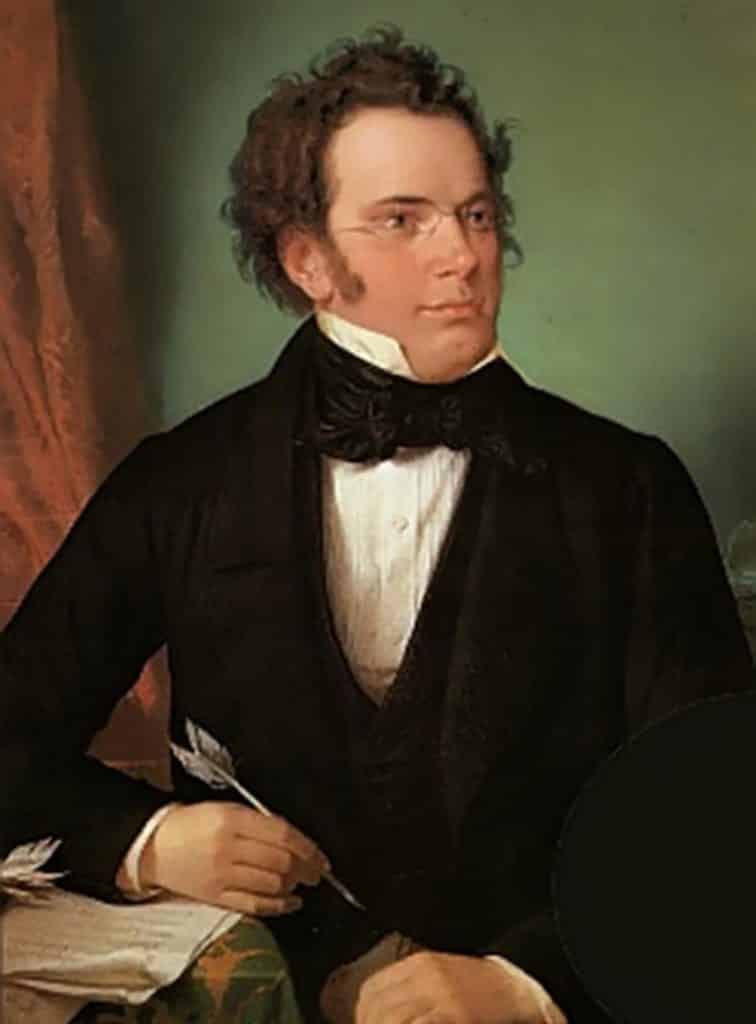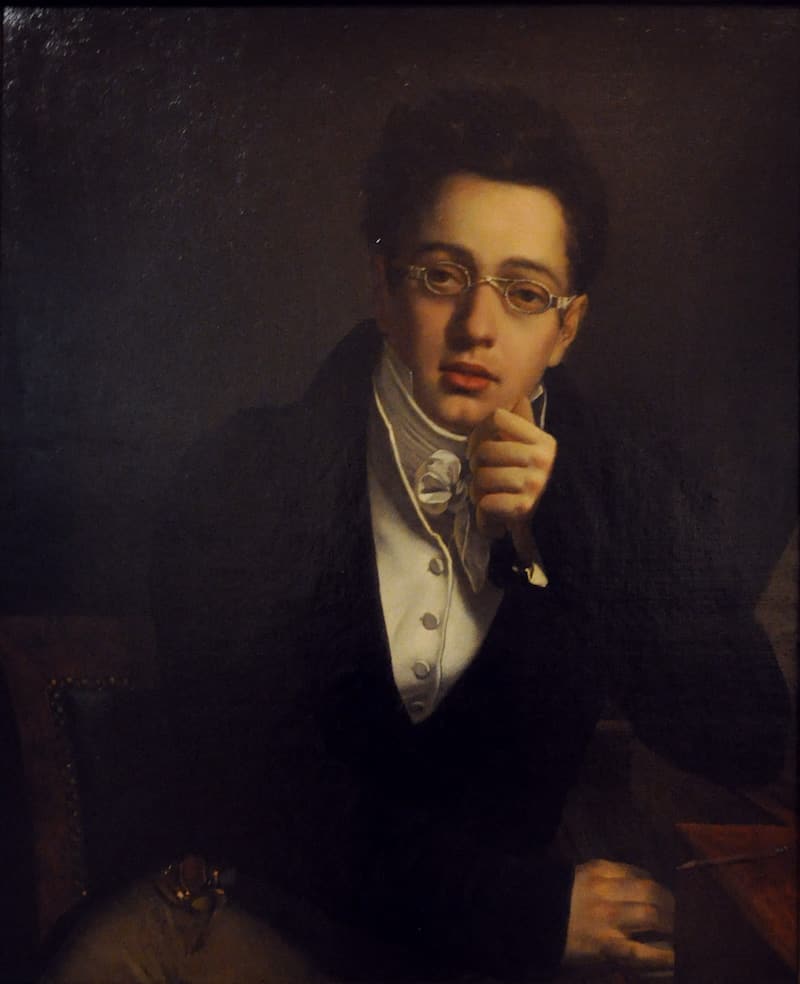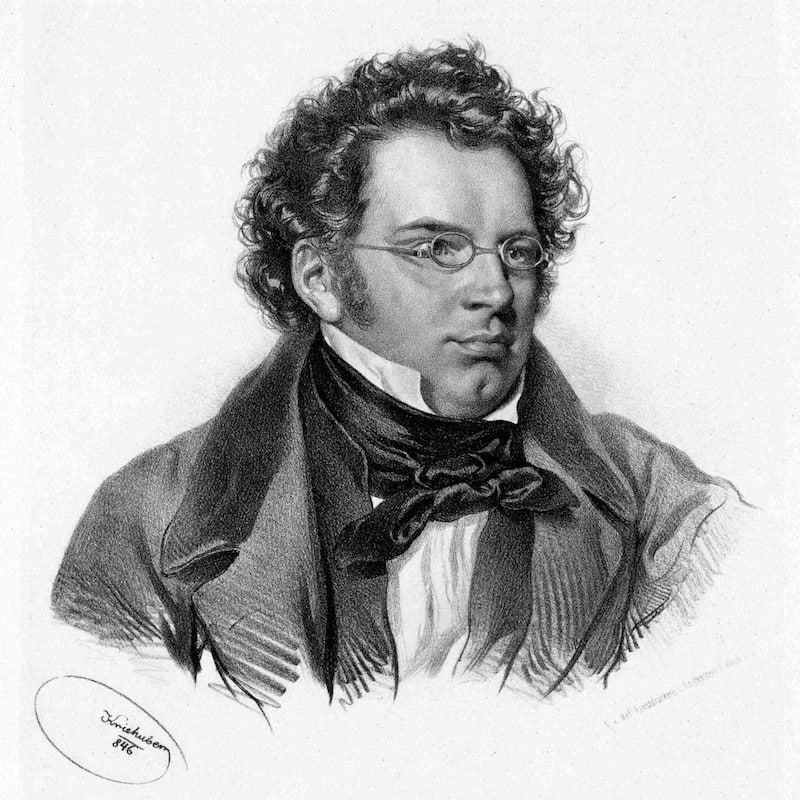Austria has produced some of history’s greatest composers, and Franz Schubert is one of the most renowned.
Born on January 31, 1797, in Vienna, Franz Schubert quickly rose through the musical ranks to become one of the greats at a young age. Despite leading a short life, Schubert boasts about 600 compositions, nine symphonies, string quartets, and several sonatas, among other pieces.
Schubert is regarded as one of the finest composers of all time, with a gift for creative, melodic, and harmonic composition. This article delves into some of the most interesting facts about one of the greatest Austrian composers.
Here are ten interesting facts about Franz Schubert that you probably didn’t know. Let’s find out!
1. He was a reveler

Franz Schubert passed his evenings relishing wine and music, similar to several other iconic composers. And Schubert was a boisterous alcoholic.
He appreciated a good time and was famed for his musical gatherings with a group of artists known as “Schubertiads.” During their gatherings, they would perform some of his most recent works.
2. He possessed a unique physique
Schubert was a short man at barely five-foot-one tall. Moreover, he was somewhat overweight, which, combined with his odd height and diminutive frame, earned him the nickname “Schwammerl” (little mushroom).
Other distinguishable physical traits of Schubert’s were his stutter and his tendency to shuffle when he walked.
Schubert was also nicknamed “kanevas” because he frequently questioned new acquaintances, asking them, “Kann er was?” (What can he do?).
3. He hailed from a large family
Like the rest of the world in the 18th century, infant mortality was at its peak in Austria. As a result, large families were typical in Vienna, and Franz Schubert’s family was not an exception.
His father, Peter, was first married to Elisabeth Vietz at 19. Together, they bore 14 children, with only five surviving. The youngest was Franz.
After the death of his wife, Peter remarried, and his second wife bore him five more children.
4. He did not intend to compose “Ave Maria”
The iconic Roman Catholic prayer “Ave Maria” was written in two notable versions: the first version was composed by Charles Gounod, who created an arrangement for the verses over J.S. Bach’s first prelude for the keyboard.
Gounod was introduced to Bach’s work by Felix Mendelssohn’s sister, Fanny.
The second is Franz Schubert’s rendition. Schubert’s work was initially inspired by Walter Scott’s epic poem, “The Lady Of The Lake.”
The opening lyrics of the refrain of “Ave Maria” are said to have been the inspiration for Schubert’s adaptation of the “Ave Maria” prayer.
Many artists have arranged and performed their own versions of Schubert’s song, including Pavarotti and Perry Como.
5. The mysterious unfinished symphony
“Symphony No. 8 in B minor,” widely referred to as the “Unfinished Symphony,” is an iconic musical piece that he began in 1822.
However, the piece was abandoned after just two movements, even though he would not pass away for six more years.
The “Unfinished Symphony” was discovered just over three decades after Schubert’s demise when an older man alleged that Schubert had sent a manuscript to him about four decades earlier.
Some music lovers and critics believe the missing bit of the symphony is the Entr’acte from “Rosamunde,” a play by Helmina von Chézy that features Schubert’s music.
6. As the tree, so the fruit
Schubert’s father, Peter, a teacher, was an amateur cellist who laid the foundation for his son’s musical journey, teaching him the fundamentals of music.
Like any passionate father, he expected his son Franz to follow in his musical footsteps and become a teacher. However, Franz quickly outperformed all his musical mentors, from his father to his elder brother and the town choirmaster.
At just seven years old, Antonio Salieri, one of the notable composers from the Romantic era, scouted the young talent and whisked him off to the Imperial Seminary.
At the seminary, Schubert was taught music theory, sang in the choir, and played the violin in the orchestra.
Schubert did finally work as a teacher for three years, just as his father had wished.
7. He was part of the Vienna Boys’ Choir

Schubert certainly had an undeniable enthusiasm for music. Antonio Salieri, his music trainer, pushed him to audition for the Vienna Boys’ Choir—which he did—and was accepted.
After passing the audition, Schubert enjoyed free tuition, a boarding room, and a spot at one of Vienna’s premier schools.
However, he became ineligible to be a member of the choir when he reached 15, and his voice was no longer suitable for a boys’ choir.
Schubert was then offered a position at his father’s school upon returning home.
8. He was a torchbearer at Beethoven’s funeral
The great composer Beethoven is reported to have said about Schubert’s work: “Truly in Schubert, there is a divine spark.” He also predicted that Schubert will one day become successful.
Subsequently, in March 1827, Schubert was a torchbearer at Beethoven’s funeral. Thirty-nine other torchbearers graced the funeral, including famous composers Hummel and Czerny.
Being a torchbearer at a great man’s funeral, however, did not reflect any special friendship he’d had with Beethoven but rather his status in Vienna society.
Upon meeting his own death, Schubert was laid to rest next to Beethoven as he had requested. However, his funeral was a modest occasion, as his popularity had not reached the same heights as Beethoven’s, who had died only a year before.
It was until after Schubert died that his brilliance was recognized.
Related: Next, read our list of interesting facts about Beethoven.
9. Many of his works were unpublished

Being rejected by a publisher has always been the bane of the amateur artist; Schubert was no exception.
He created an extensive music profile throughout his short life, yet he struggled to have it published.
Only 187 of his approximately 600 songs were published during his lifetime. Unfortunately, none of his symphonies or operas were published either.
Schubert passed away at only 31 years old after contracting typhoid and venereal disease, which he most certainly contracted from a prostitute, considering such infections were rampant in Vienna in the 1820s
10. He had to choose between law and music
At 19, Franz Schubert started a law course in Vienna. At the same time, he began composing “Symphony No. 5.”
This composition is thought to have prompted Schubert to discontinue his law study to focus on his music.
“Symphony No. 5” is generally regarded as a tribute to the classical masters Haydn and Mozart. The iconic piece has become a favorite for music enthusiasts and anyone who wants to enjoy the fullness of his music.
The song exhibits Schubert’s state at the time: fresh, full of youthful energy, and brimming with melodies.
Final Thoughts On Our List Of Fascinating Facts About Franz Schubert
It is argued that Schubert’s standing in music history is uncertain since he exists somewhere between the realms of classical and romantic music. It wasn’t until the decades after his death that Schubert began to be recognized as the musical prodigy that he was.
Nonetheless, he is considered among the last of the great classical composers.
